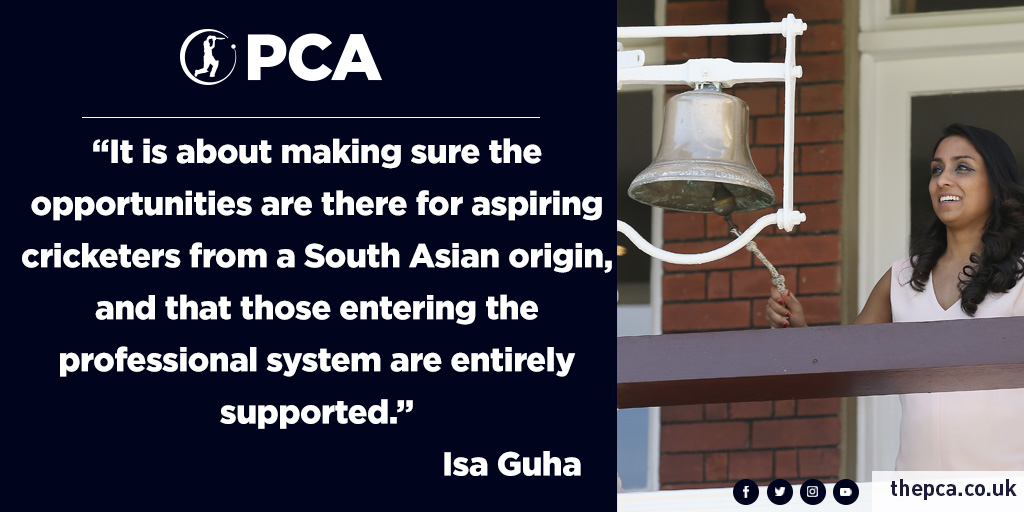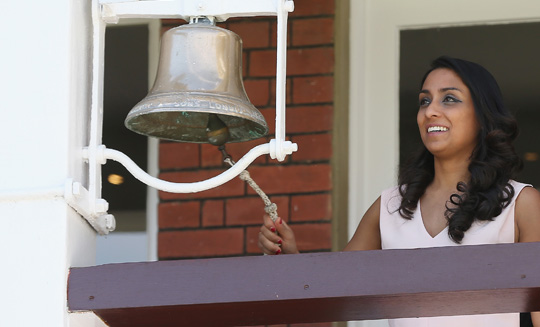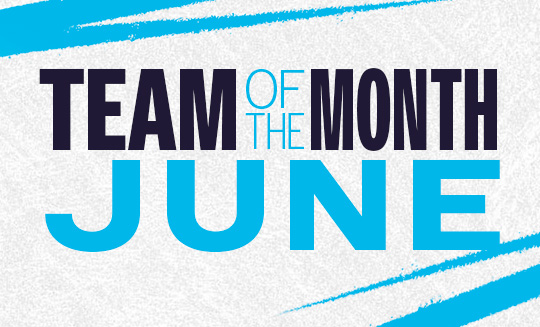Professional Cricketers’ Association Non-Executive Director Isa Guha is “hugely excited” to be part of the Action Plan to transform the way the ECB engages with South Asian communities.
The ECB have announced a wide-ranging Action Plan to transform the way it engages with South Asian communities and draw more players, fans and volunteers into every level of the game.
The Action Plan will launch with a series of events in three ‘core cities’ including a Chance to Shine Street Tape-ball competition at Sparkhill Park in Birmingham, a schools’ cricket competition at Bradford Park Avenue Cricket Ground in Yorkshire and a women’s and girls’ cricketing session at Leyton County Ground Sport Centre in East London.
As part of the ECB’s ambition to make cricket more representative and reflective of modern communities, a South Asian Advisory Group was put together by Chief Strategy Officer David Mahoney. The group includes experienced individuals from within and outside the game such as the PCA board member Guha, Wasim Khan, Mark Nicholas, Manoj Badale, Ron Kalifa among many others.
“I am hugely excited to be involved in what is a long-term plan to engage better with South Asian communities,” said former England international Guha.
“Having been involved in past projects this feels totally different, firstly due to an extensive report and detailed action plan, which has been 15-months in the making. Furthermore, a full commitment from the ECB means that this feeds into all aspects of cricket in England and Wales, but not just that, there are wider social implications.

“Representation of the playing population is vitally important and that is at all levels. From playing, to coaching and administration.
“I’d also like to see more South Asian women taking part in the sport and that can be built from grassroots with the All Stars Programme which has been a huge success to date.”
The group looked at the challenges facing South Asian communities at every level of the game. Within a wealth of insight, the research revealed that:
- South Asian participation in recreational cricket is at 30%;
- The single biggest barrier to South Asian participation is access to facilities in urban areas;
- Other challenges identified included; lack of scouting or talent ID in urban areas, the cost of travel and equipment for county age group cricketers, a lack of female coaches, access to cricket at school and a lack of cultural considerations within the match day experience;
- 3% of domestic, non-international, ticket sales are from South Asian audiences compared to 40% in the Champions Trophy;
- Cricket is overwhelmingly popular with South Asian communities who contribute 18% of the cricketing economy.
To develop the plan, the project team, led by Head of Strategy Vikram Banerjee, conducted the largest ever UK study into cricket in South Asian communities, analysing tens of thousands of survey responses and hundreds of thousands of database records to understand how these diverse groups view cricket.
England international and Worcestershire player Moeen Ali said:
“Growing up in inner-city Birmingham, I fully understand some of the challenges and barriers for young South Asian cricketers and I see many of those challenges now when I help my Dad coach at his cricket academy.
“Many parents are still struggling to afford kit for their kids and the new bursaries will give emerging players the opportunity to continue to improve and develop in the game.
“In the next six months, England’s men play against Pakistan, India and Sri Lanka and as well as hoping to play my part on the pitch, I’m looking forward to seeing a new generation of players, fans and coaches coming into the game.”
MOEEN ALI, ENGLAND ALL-ROUNDER
Heather Knight, captain of the England’s World Cup-winning women’s team, said:
“Hearing the noise of the crowd in last summer’s ICC Women’s World Cup Final against India gave a really great indication of the untapped potential we have in our game.
“There was real passion and vibrancy and much of it came from people who may not traditionally have come to watch cricket. It’s so important that we speak to new audiences and engage new fans especially women and girls and South Asian communities.”
For more information on the ECB’s Action Plan and the 11 recommended actions visit ecb.co.uk/southasiancricket.













